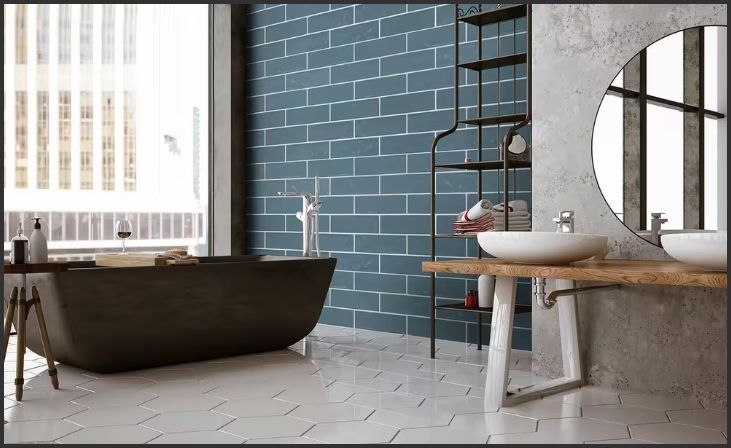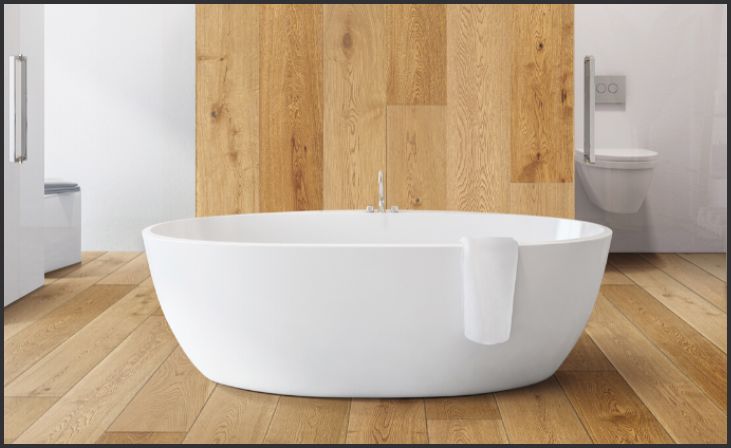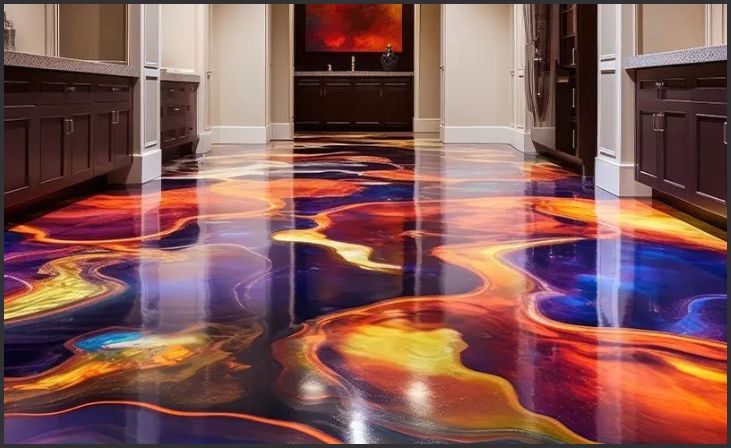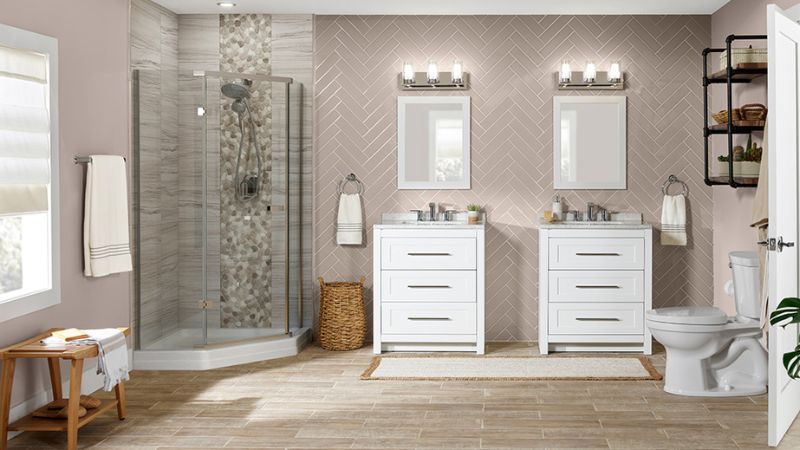Best Flooring Type for a Small Bathroom – Choosing the right flooring for a small bathroom is crucial for both functionality and aesthetics. The bathroom is a high-moisture environment, making it essential to select a flooring type that can withstand water and humidity without compromising its integrity. ‘
Additionally, in a limited space like a small bathroom, the flooring choice can significantly impact the overall look and feel of the room. Factors such as durability, maintenance, space maximization, and budget all play a vital role in determining the best flooring option. By carefully considering these factors, homeowners can ensure they make an informed decision that meets their needs and preferences.
In this guide, we will explore various flooring types suitable for small bathrooms, highlighting their strengths and weaknesses. Whether you prioritize waterproofing, durability, ease of maintenance, or affordability, there is a flooring option that can enhance the functionality and style of your small bathroom.
Best Flooring Type for a Small Bathroom
Ceramic or Porcelain Tile:

Ceramic and porcelain tiles are popular choices for bathrooms due to their durability and water resistance. Ceramic tiles are made from clay and minerals, while porcelain tiles are more dense and less porous.
Both options are available in various sizes, shapes, colors, and textures, allowing for endless design possibilities. They are easy to clean and maintain, making them ideal for small bathrooms where space and cleanliness are priorities.
Also, Read – Is Hardwood the Better Choice Over Carpet
Vinyl:
Vinyl flooring is a versatile and affordable option for small bathrooms. It is available in sheets, tiles, or planks and comes in a wide range of styles, including designs that mimic natural materials like wood, stone, or tile.
Vinyl is water-resistant and easy to clean, making it suitable for bathrooms prone to moisture and spills. Additionally, it provides a comfortable and soft underfoot feel, making it ideal for barefoot areas like bathrooms.
Laminate:
Laminate flooring offers the look of hardwood or stone at a more affordable price point. It is composed of multiple layers, including a durable wear layer that resists scratches and moisture.
Laminate flooring is available in various styles and finishes, allowing you to achieve the desired aesthetic for your small bathroom. While not as water-resistant as other options, laminate flooring can still withstand occasional spills with proper maintenance and care.
Natural Stone:
Natural stone, such as marble, travertine, or slate, adds a touch of luxury and elegance to any bathroom. These materials are durable, timeless, and come in a variety of colors and patterns.
When properly sealed, natural stone is resistant to water and moisture, making it suitable for small bathroom floors. However, natural stone can be more expensive than other flooring options and may require regular maintenance to preserve its beauty and integrity.
Engineered Wood:

Engineered wood flooring combines the aesthetic appeal of hardwood with enhanced durability and moisture resistance. It is constructed with multiple layers of wood veneer bonded together, providing stability and strength.
Engineered wood flooring is available in various species, finishes, and plank sizes, allowing you to achieve the desired look for your small bathroom. While more resistant to moisture than solid hardwood, it is still important to wipe up spills promptly and maintain proper ventilation to prevent warping or damage.
Cork:
Cork flooring is an eco-friendly option made from the bark of cork oak trees. It is naturally resistant to mold, mildew, and moisture, making it ideal for small bathrooms.
Cork flooring is soft underfoot, providing a comfortable surface to stand on, and offers excellent thermal and sound insulation properties. However, it is essential to seal cork flooring regularly to maintain its water resistance and prevent damage from moisture exposure.
Rubber:
Rubber flooring is a durable and resilient option for small bathrooms. It is available in sheets, tiles, or interlocking mats and comes in a variety of colors, patterns, and textures.
Rubber flooring is slip-resistant, making it a safe choice for wet areas like bathrooms, and is easy to clean with mild soap and water. Additionally, it provides cushioning and shock absorption, reducing fatigue and strain on joints while standing or walking.
Linoleum:
Linoleum flooring is a natural and sustainable option made from linseed oil, cork dust, wood flour, and resins. It is durable, water-resistant, and available in a wide range of colors and patterns.
Linoleum flooring is easy to clean and maintain, requiring only regular sweeping and occasional mopping with a neutral pH cleaner. It is also hypoallergenic and antimicrobial, making it a healthy choice for small bathrooms where hygiene is a concern.
Concrete:
Concrete flooring is a modern and minimalist option for small bathrooms. It can be stained, stamped, or polished to create a custom look that complements your bathroom decor.
Concrete is durable, water-resistant, and easy to clean, making it suitable for high-traffic areas like bathrooms. However, it may require sealing to prevent moisture penetration and staining, and it can feel cold underfoot without radiant heating or rugs.
Epoxy:

Epoxy flooring is a seamless and waterproof option that is commonly used in commercial and industrial settings but is gaining popularity in residential bathrooms. It is highly durable, resistant to stains, chemicals, and moisture, making it an excellent choice for small bathrooms prone to spills and splashes.
Epoxy flooring is available in a variety of colors, patterns, and textures, allowing for endless design possibilities. However, it requires professional installation and may be more expensive upfront than other flooring options.
Conclusion
In conclusion, when choosing flooring for a small bathroom, it’s essential to prioritize factors such as waterproofing, durability, space maximization, maintenance, and budget. Considering options like porcelain tile, vinyl plank, or luxury vinyl tile can provide the ideal balance of functionality and aesthetics.
By selecting the right flooring, homeowners can create a stylish and practical space that withstands the challenges of a high-moisture environment while maximizing the available space and staying within budget constraints.
FAQs
What flooring material is best for a small bathroom?
The best flooring materials for small bathrooms are typically those that are waterproof, durable, and easy to maintain. Options such as porcelain tile, vinyl plank, and luxury vinyl tile are popular choices.
Is tile a good option for a small bathroom?
Yes, tile is an excellent choice for small bathrooms because it is waterproof, durable, and comes in various sizes, colors, and patterns, allowing for customization to suit the space.





